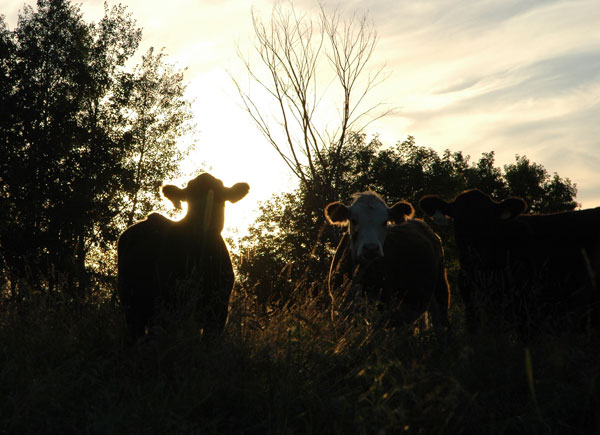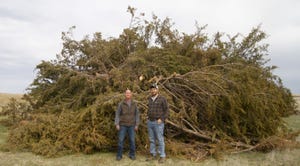Catastrophic Wildfire Prevention Act Reintroduced
The bipartisan bill would reduce excessive fuel loads on federal lands by utilizing livestock grazing and timber thinning.
March 26, 2013

The Catastrophic Wildfire Prevention Act of 2013 (H.R. 1345), a bill that would facilitate an expedited process to reduce hazardous fuel loads on federal lands through livestock grazing and timber harvesting, has been reintroduced in the House with bipartisan support by Rep. Paul Gosar (R-AZ).
The bill, which is supported by the Public Lands Council (PLC), National Cattlemen’s Beef Association (NCBA) and Arizona Cattle Grower’s Association (ACGA), proposes to reduce the risk of catastrophic wildfire on areas identified as high-risk and managed by the U.S. Forest Service (USFS) and the Bureau of Land Management (BLM). It would streamline analyses performed under the National Environmental Policy Act in those areas, expediting fuels-reduction activities such as livestock grazing and timber thinning.
When threatened or endangered species are at risk, it would also allow for hazardous fuels-reduction projects to go forward under existing emergency provisions of the Endangered Species Act. Furthermore, it adds to last year’s legislation by including contract stewardship and good neighbor authority measures, which facilitate the completion of forest management projects through public-private partnerships and cooperation with state governments.
PLC President Brice Lee and NCBA President Scott George agreed that the bill addresses the significant issue of catastrophic wildfire in the West by reducing administrative delays, expediting forest management processes, and encouraging better forest health and economic development.
“Last year, more than 9 million acres were burned in one of the worst fire seasons this country has seen in the last few decades. In that scenario, everyone bears the burden of habitat loss – ranchers, western communities, wildlife and the taxpayer, to name a few,” Lee says. “We hope Congress acts swiftly and moves forward with passing this legislation, so that ranchers and entire communities do not remain vulnerable during what may be another devastating fire season this year.”
George adds that fires threaten both rural and urban communities and impair the watersheds the public depends on.
“The red tape beleaguering USFS and the BLM when addressing wildfires is endangering the lives and operations of livestock producers, threatening the natural resources the public depends on, and hindering economic growth,” George says. “This bill seeks to put an end to these issues and allow for better management of public lands.”
Arizona rancher and ACGA President Andy Groseta spoke to the grassroots process that brought about this critical need for a streamlined agency process.
“In 2011, ACGA members developed the Save Arizona’s Forest Environment plan that gained support from dozens of cities, town, counties and other organizations locally and nationally. The residents of rural America recognize the need to return our forests back to true working landscapes governed by responsible multiple-use management,” he said. “The Catastrophic Wildfire Prevention Act of 2013 is a commonsense way to accomplish that and to prevent wildfires from destroying public and private lands across the West.”
You might also like:
Infographics Highlight Technology Efficiency In Beef Industry
Ranching Operations Personify Environmental Stewardship
Government Policy Hampers Wildfire Recovery
Consider Both The Environment & The Consumer In Sustainability
You May Also Like
.png?width=300&auto=webp&quality=80&disable=upscale)


